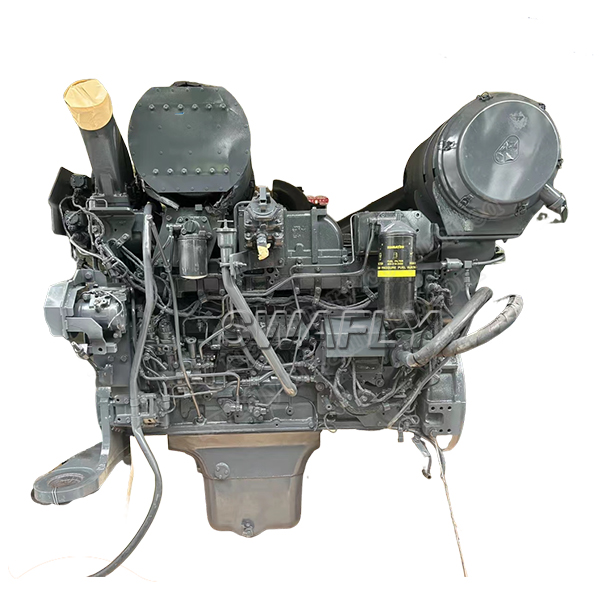The Future of Diesel Engines: Innovations and Environmental Impact
2024-07-11
Diesel engines have been a cornerstone of many industries for decades, but with increasing environmental concerns and advancements in technology, the landscape is changing. In this blog, we will explore the future of diesel engines, focusing on recent innovations and their environmental impact.

Innovations in Diesel Engine Technology
1. Turbocharging and Supercharging: Modern diesel engines often use turbochargers and superchargers to increase the amount of air entering the engine, resulting in better combustion and increased power output. These technologies enhance performance while maintaining fuel efficiency.
2. Advanced Fuel Injection Systems: Innovations in fuel injection systems, such as common rail direct injection, have significantly improved diesel engine efficiency. These systems allow for precise control of fuel delivery, optimizing combustion and reducing emissions.
3. Exhaust Gas Recirculation (EGR): EGR systems reduce nitrogen oxide (NOx) emissions by recirculating a portion of the exhaust gases back into the engine cylinders. This helps lower the combustion temperature and reduces harmful emissions.
4. Selective Catalytic Reduction (SCR): SCR systems use a urea-based solution (AdBlue) to convert NOx emissions into harmless nitrogen and water vapor. This technology is widely used in modern diesel engines to meet stringent emission standards.
5. Particulate Filters: Diesel particulate filters (DPFs) capture and remove soot and particulate matter from the exhaust gases. Regular regeneration cycles burn off the collected particles, ensuring the filter remains effective.
6. Hybrid Diesel Engines: Combining diesel engines with electric powertrains, hybrid systems offer improved fuel efficiency and reduced emissions. These engines are becoming increasingly popular in commercial vehicles and public transportation.
Environmental Impact of Diesel Engines
1. Emissions: Diesel engines produce several pollutants, including NOx and particulate matter, which can contribute to air quality issues and health problems. However, modern emission control technologies like EGR, SCR, and DPFs have significantly reduced these emissions.
2. Fuel Consumption: Diesel engines are more fuel-efficient than gasoline engines, which means they consume less fuel and produce less CO2 per mile. This makes them a more environmentally friendly option in terms of greenhouse gas emissions.
3. Lifecycle Impact: The production and disposal of diesel engines also have environmental implications. Advances in recycling and the use of sustainable materials are helping to mitigate these impacts.
4. Biofuels and Renewable Diesel: The development of biofuels and renewable diesel offers a promising solution to reduce the environmental impact of diesel engines. These fuels are derived from renewable sources and can significantly lower CO2 emissions compared to traditional diesel.
The Role of Diesel Engines in a Sustainable Future
1. Heavy-Duty and Industrial Applications: Diesel engines will continue to play a vital role in heavy-duty and industrial applications where high torque and durability are essential. Innovations in engine technology and emission controls will make these engines cleaner and more efficient.
2. Transition to Alternative Fuels: The shift towards alternative fuels, such as biofuels and renewable diesel, will help reduce the environmental impact of diesel engines. These fuels can be used in existing diesel engines with minimal modifications, offering a practical path towards sustainability.
3. Integration with Hybrid Systems: The integration of diesel engines with hybrid and electric powertrains will provide a bridge to fully electric vehicles, offering improved efficiency and reduced emissions during the transition period.
4. Regulatory Compliance: Stricter emission standards and environmental regulations will drive further innovations in diesel engine technology. Manufacturers will continue to develop cleaner and more efficient engines to meet these requirements.
Conclusion
The future of diesel engines lies in continued innovation and the adoption of cleaner technologies. While traditional diesel engines have environmental challenges, advancements in fuel injection, emission controls, and the use of alternative fuels are making them more sustainable. Diesel engines will remain essential in many industries, and their evolution will contribute to a cleaner and more efficient future.


